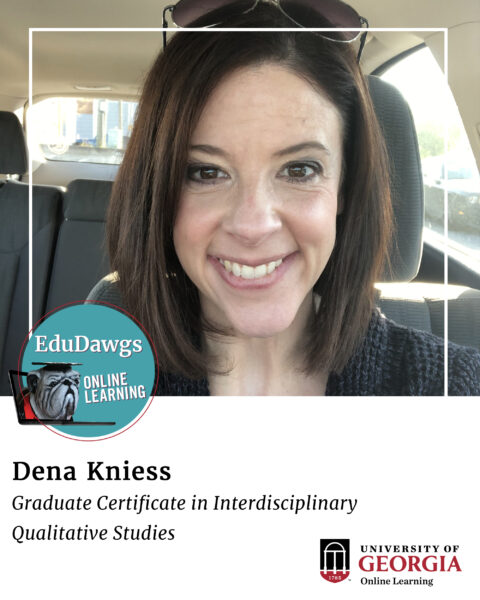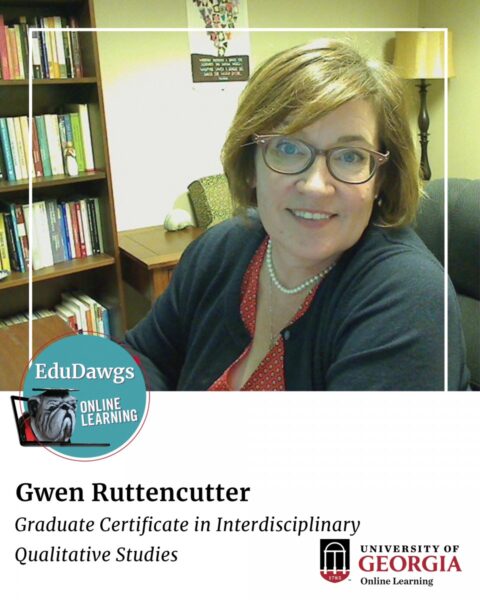- Technical Help
- CE/CME Help
- Billing Help
- Sales Inquiries

Qualitative Data Analysis
This course provides an applied approach to qualitative data analysis through the lens of multiple methods and methodologies.
About this Course
The analysis of qualitative research data is a fundamental yet multifaceted process that requires careful attention to the unique qualities of qualitative research design. This course provides an applied, phenomenological approach to qualitative data analysis. It is designed for an interdisciplinary audience with examples taken from the nonprofit, commercial, and government sectors in the health and social sciences.
Undergraduate/graduate students, research staff, and IRB members in particular may find this course meaningful as an introduction to qualitative research methods.
Course Preview:
Language Availability: English
Suggested Audiences: Faculty, IRB Chairs, IRB Members, Research Staff, Undergraduate and Graduate Students
Organizational Subscription Price: $675 per year/per site for government and non-profit organizations; $750 per year/per site for for-profit organizations Independent Learner Price: $99 per person
Course Content
" role="button"> introduction to qualitative data analysis.
This module discusses the data analysis considerations shared by all qualitative methods and approaches this course covers. This includes the basic qualitative data analysis process and tools and the rigorous and ethical approaches to qualitative data analysis that apply across methods.
Recommended Use: Required ID (Language): 20971 (English) Author(s): Margaret R. Roller, MA - Roller Research
" role="button"> In-Depth Interview Method
This module begins with an overview of the basic in-depth interview method and its variations. This provides the foundation for the core discussions concerning the distinctive aspects of the in-depth interview method that affect qualitative data analysis, including quality and ethical considerations.
Recommended Use: Supplemental ID (Language): 20972 (English) Author(s): Margaret R. Roller, MA - Roller Research
" role="button"> Focus Group Discussion Method
To provide a basis for the core discussions, this module begins with an overview of the fundamentals of the focus group method and its variations. This provides an understanding of the distinctive aspects of the focus group method that affect qualitative data analysis, including quality and ethical considerations.
Recommended Use: Supplemental ID (Language): 20973 (English) Author(s): Margaret R. Roller, MA - Roller Research
" role="button"> Ethnography
Understanding the ethnographic approach and its variations is important to the discussion of data analysis. For this reason, the module begins with an overview of ethnographic research and the distinctive aspects of ethnography that affect qualitative data analysis, including quality and ethical considerations.
Recommended Use: Supplemental ID (Language): 20974 (English) Author(s): Margaret R. Roller, MA - Roller Research
" role="button"> Narrative Research
This module provides an overview of narrative research and its variations. It provides an overview of narrative research, which serves as a foundation for the core discussions concerning the distinctive aspects of the narrative research approach that affect qualitative data analysis. The module concludes with a discussion of quality and ethical considerations.
Recommended Use: Supplemental ID (Language): 20975 (English) Author(s): Margaret R. Roller, MA - Roller Research
" role="button"> Case Study Research
Case study research and its variations are examined at the start of this module. Then, distinctive aspects of case study research that affect qualitative data analysis are explored, including quality and ethical considerations.
Recommended Use: Supplemental ID (Language): 20976 (English) Author(s): Margaret R. Roller, MA - Roller Research
" role="button"> Qualitative Content Analysis Method
This module reviews the basic Qualitative Content Analysis (QCA) method and its variations. It also discusses the distinctive aspects of the QCA method that affect qualitative data analysis and the quality and ethical considerations that QCA presents.
Recommended Use: Supplemental ID (Language): 20977 (English) Author(s): Margaret R. Roller, MA - Roller Research
Who should take the Qualitative Data Analysis course?
The suggested audience includes students, faculty, and staff that want to learn more about the basics of qualitative data analysis and one or more of the discussed methods.
How long does it take to complete the Qualitative Data Analysis course?
This course consists of one required module and six supplemental modules. All learners should complete module 1 and then complete the supplemental modules as needed (20-30 minutes each).
" role="button"> Why should an organization subscribe to this course?
Organizational subscriptions provide access to the organization's affiliated members. This allows organizations to train individuals across the organization on how to properly conduct qualitative data analysis.
" role="button"> What are the standard recommendations for learner groups?
This course is designed such that learners should complete the first module and then any following method modules as needed.
" role="button"> Is this course eligible for continuing medical education credits?
This course does not currently have CE/CME credits available.
Related Content
This course provides learners with an understanding of how to improve study design, collect and analyze data, and promote reproducible research.
Essentials of observational research protocol design and development.
Foundational course that orients and prepares learners to engage with the scholarly publication process in an informed way.
An in-depth review of the development and execution of protocols.
Cookies on this website
We use cookies to ensure that we give you the best experience on our website. If you click 'Accept all cookies' we'll assume that you are happy to receive all cookies and you won't see this message again. If you click 'Reject all non-essential cookies' only necessary cookies providing core functionality such as security, network management, and accessibility will be enabled. Click 'Find out more' for information on how to change your cookie settings.

- Study with us
- Short Courses in Qualitative Research Methods
Oxford Qualitative Courses: Short Courses in Qualitative Research Methods
Expert teaching from specialists in qualitative research methods
Short courses:
- Introduction to Qualitative Research Methods
- Introduction to doing Qualitative Interviews
- Introduction to Analysing Qualitative Data
- Introduction to conversation analysis and health care encounters
- Learning with the book: an introduction to qualitative research methods for health research
The University of Oxford's expert-led programme of short courses in qualitative research methods aims to equip participants with the knowledge and skills to design, conduct, and interpret qualitative research. Through these short courses we share the experience, knowledge and enthusiasm of our research-active tutors
Our courses are particularly suited to those who are planning or working on projects with a qualitative research component. Our aims are to:
- Equip health and care professionals, researchers and policy makers with an understanding of the different approaches to qualitative research
- Support the development of core skills such as interviewing, ethnographic observation, running focus groups (whether virtual or face-to-face), conversation analysis, meta-ethnography, and qualitative data analysis.
This highly-regarded programme is delivered in online and face-to-face formats to suit a range of learners. We use a mixture of lectures and small group work, delivered by our team of qualitative researchers from the University of Oxford’s Medical Sociology and Health Experiences Research Group . Our group has run these successful courses for twenty years alongside active involvement in qualitative research on a variety of topics, ranging from studies of experiences of health conditions and of healthcare practice, to evaluations of organisational change. Our group also includes qualitative methodologists at the forefront of developing qualitative methods including conversation analysis and evidence synthesis.
Findings from our group’s research on patient experiences, together with supported video, audio and text extracts, can be found on the HEXI.ox.ac.uk website. Our portfolio of research and expertise informs current local, national and international healthcare policy and research.
The syllabuses of our qualitative courses draw on a wide range of expertise from within our research group, including the disciplinary areas of medical sociology, anthropology, and public policy.
Teaching team
Our courses are led by a highly experienced and research-active teaching team. Our team have a range of specialities and skills spanning the breadth of qualitative research methods, ensuring that each session is led by a knowledgeable expert in the field. As well as being accomplished researchers, our team are skilled at communicating qualitative research methods to people in an accessible and clear way. Our team are friendly and approachable and will be available to offer tailored feedback during the course. Our participants regularly emphasise that our teaching team are a highlight of our courses.
Who are OUR courses for?
Our courses are suited to a wide range of professions, including:
- Health and care professionals
- Undergraduate and postgraduate students
- Academics and researchers interested in health research
- Marketing and communications professionals
- Health and care advisers and policy makers
What do participants think?
New: Online Resources
Our teaching team have collated a series of freely available online resources for anyone looking for learning opportunities.
Receive our bulletin:
Our courses are popular and often sell-out quickly. To receive a bulletin of upcoming course dates, please register here .
Got a question? Contact us:
Our friendly team are on-hand to answer your questions and queries.
Email: [email protected]
- Skip to Content
- Skip to Main Navigation
- Skip to Search

Indiana University Bloomington Indiana University Bloomington IU Bloomington

- Office Directory
- Add or Edit Profile
- Community Engagement
- Financial Management Practices
- Development and Alumni Relations
- Benefits and Services
- Employee Appreciation Programs
- The Five Functions of DEI
- Communication
- Recruitment
- DEI Dashboard
- 2020 Report
- 2019 Report
- Student Ambassadors
- Education Library
- Education Technology Services
- Graduate Studies
- Instructional Consulting
- Downloadable Resources
- Promotional Posting Guidelines
- SoE Promotional Items
- Video Production Guidelines
- Research and Development
- Records and Reporting
- Dean's Advisory Board
- Service, Leadership, and Outreach
- Student Success
- Diversity Plan
- 100th Anniversary Book
- Diversity, Equity, and Inclusion
- Targeted Engagements
- Global Gateway for Teachers
- Overseas Short-Term Study Experiences
- External Grant Opportunities
- Our Global Reach
- Faculty and Student Int'l Engagement
- IU Global Gateways
- Indiana Global Education Outreach
- Int'l Partnerships
- Visiting Int'l Scholars
- Int'l Student Ambassadors
- Academic Programs
- International Journals
- News & Events
- Int'l Student Resources
- Professional Development
- CAEP Annual Reporting Measures
- CAEP Accreditation Visit Call for Third-Party Comments
- How to View Placement Details
- How to View and Submit Evaluation Rubrics
- Linking an Embedded Signature Asessment into Canvas
- How to Create an ePortfolio on Watermark
- How to submit an assignment or assessment
- SoE Data Dashboards (Faculty)
- Licensure Requirements
- Employment Outcomes
- Employer Evaluations
- Student Teaching Survey Reports
- Attrition & Completion Rates
- Graduate Survey Results
- Indiana Teachers of the Year
- Emergency Action Plan
- SoE Emergency Information
- School Violence
- Report Facility Issue
- TEP Application Guidelines
- Non-School of Education Scholarships
- Graduate Student Funding
- Student Emergency Fund
- Campus Financial Aid Resources
- Field Trips
- Accessible Virtual Tour
- Why Be an Educator?
- Factor Future Educator Program
- Ask an Alumni
- INSPIRE Living-Learning Center
- All Programs
- License Additions
- Master's Programs
- Doctoral Programs FAQ
- Specialist Programs
- Certificate Programs
- Doctoral Minors
- Licensure Programs
- Transition to Teaching
- New Zealand
- Northern Ireland
- Navajo Nation Program
- Urban Program
- Overseas CASS Internships
- Teacher Spotlights
- IU Bloomington Students
- Guest Campus Students
- Partner Campus Students
- Student Spotlights
- Cost & Financial Aid
- Online Learning
- Tuition and Fees
- Registration
- Block Enrollment Course Information
- Student Teaching Registration Information
- Program Sheets
- Forms & Publications
- Credit Overload Request
- Four Year Plan
- Academic Calendar
- Undergraduate Bulletin
- Background Check
- Early Field Experiences
- Student Teaching Forms
- Preparation
- Frequently Asked Questions
- Student Organizations
- Student Testimonials
- Dean's List
- Report Your Concerns
- Scholarships
- Career Coaching
- Student Teaching Fair
- Health and Human Services Career Day
- Interview Day
- Explore Possibilities
- Get Experience
- Stay Connected
- Professional Distinction
- Educator Wellbeing Distinction
- Workshops and Training
- Recruiting Policies
- Classroom Presentations
- Graduation Deadlines
- Leave Policy
- Online Students
- Graduation Application
- Guidelines for Multi-Article Dissertations
- G901 Permission Request
- Qualifying Examinations
- 2024 Scholars
- 2023 Scholars
- 2022 Scholars
- 2021 Scholars
- 2020 Scholars
- Program-Specific Information
- International Student Ambassadors
- Student Affiliates in School Psychology
- Dissertation & Thesis Announcements
- Approved Core Inquiry Courses
- Holmes Scholars Program
- Initial Licensure
- License Renewal
- Licensing Outside Indiana
- Knowledge Base
- Graduate Bulletin
- Teaching with Technology Lab
- Support Services
- Volunteering Opportunities
- Faculty Directory
- Applied Psychology in Education and Research Methodology
- Curriculum and Instruction
- Chair's Welcome
- IST Conference
- Faculty Bookshelf
- Faculty Meetings
- Policies and Procedures
- Instructor Resources
- In Memoriam
- Office of Research and Development
- Spring 2024 Highlights
- Policy Reports
- Policy Briefs
- Data Visualizations
- Education Policy News
- CEEP in the News
- CEEPing Up with Education Podcast
- Evaluation Services
- Funded Research
- Research Findings
- Translation to Practice
- Equity in Action
- Overview and Project Timeline
- Analysis in Progress
- Presentations
- Accomplishments
- Teacher Study Group
- "Creative Paths to Peace" Grant
- Proffitt Internal Grant Competition
- Proffitt Summer Faculty Fellowship Program
- Tilaar Faculty Support Fund
- Cost-Share and Matching Funds on External Grant Proposals
- Current Visiting Scholars
- Become a Visiting Scholar
- Visiting Scholar Policies
- COVID-19 Entry Updates
- Faculty & Staff Giving Campaign
- Donor Spotlights
- Get Involved
- Submit a Nomination
- Alumni Magazine
- Alumni Board of Directors
- University Superintendent Search Team
- Counseling and Wellness Clinic
- Learning and Developmental Evaluation Clinic
- Current Cohort
- Past Cohorts
- Nominate a Teacher
- How to Apply
- Armstrong Teacher Panel Archive
- Current Jacobs Educators
- Past Winners
- Call for Jacobs Educator Award 2024-2025
- Advisory Board
- Teachers' Examples
- Research-to-Practice Briefs
- Speaker Series
- P-12 School Engagement
- Saturday Art School
- Past Lesson Plans
- Partners in Education (PIE)
- Maker Mobile
- Past Mentors
- HOPE Training Modules
- Nuestras personas
- Módulos de Entrenamiento de HOPE
- HOPE for Cadets
- AAC in Action
- Celebration of Excellence
- C&I Graduate Research Symposium
- Invited Sessions
- Visiting Bloomington
- Virtual Events
- Advisory Committee
- Education Law Resources
- Science Education Research Symposium
- Convocation
- Diggs Symposium
School of Education
Certificate in qualitative research and inquiry methodology (online), qualitative and quantitative research methodology, gain the expertise you need with maximum flexibility..
Explore opportunities to design and carry out rigorous qualitative research while learning about the latest cutting-edge digital tools and analytic methods for collecting and analyzing qualitative data. In this 12-credit hour program you'll investigate critical issues in the field as you design and conduct qualitative studies to answer real-world questions.
You’ll learn from caring professors who are world-renowned experts in qualitative methodologies. You can also apply certificate courses toward master’s, doctoral or other graduate degree programs.
This program is intended for:
- Employees working in applied research contexts.
- Job seekers interested in positions involving qualitative research.
- Those desiring a credential from a highly-ranked university to demonstrate their expertise to employers.
- Current graduate students taking qualitative inquiry courses who want to earn a certificate on their way to degree completion.
Application Deadlines
Admission requirements.
The Graduate Studies Office will accept unofficial transcripts and self-reported test scores for admission reviews. Any admission made with these documents would be conditioned on receipt of official documents, which should be provided as soon as possible.
If you are currently enrolled or have applied in the past year, you are eligible for a reduced application fee of $35. Learn more »
- Bachelor’s degree from an accredited institution
- Minimum undergraduate GPA of 2.75 out of 4.00
- Personal statement
- GRE scores are required only if applicant does not have a degree from an accredited U.S. institution
- Minimum 79 TOEFL score or minimum 6.5 IELTS score or minimum 115 Duolingo score (international students only)
Learn more about how to apply
Program Requirements
- Certificate in Qualitative Research and Inquiry Methodology (Online) Requirements
Costs listed are per credit hour.
2023-2024 Academic Year
2024-2025 academic year.
Find more information and calculate your expected costs at Student Central .
Careers/Applications
- Research firms
- Corporate data analytics
- Government agencies
- Universities
- Request info
Our faculty
- Inquiry Methodology Graduate Student Portal
No GRE Required
for applicants with a degree from an accredited U.S. institution

Lucinda Carspecken
Senior lecturer.

Barbara Dennis

Jessica Nina Lester

Vivek Vellanki
Assistant professor.
Jessica Nina Lester ED 4060 jnlester@indiana.edu
Start your life-changing journey
Additional links and resources.
- From the Dean
- Strategic Planning
- Global & International Engagement
- Accreditation
- Measures of Success
- Emergency Preparedness
- Departments
- Undergraduate
- Annual Highlights
- Research Centers
- Research Initiatives
- Visiting International Scholars
- Undergraduate Portal
- Career Connections
- Graduate Portal
- Academic Resources
- Award Programs
- Youth Programs
- Maker Education
- HOPE Mentoring
- Virtual Tour
- Visit the School
- Distinguished Alumni Award
Indiana University Bloomington School of Education
SoE Knowledge Base
SoE Intranet (Legacy)
Graduate Certificate in Interdisciplinary Qualitative Studies

I encourage my students to develop a reflective practice as researchers, and in my own research, I have looked at ways to think about how qualitative research is conducted.
Kathy Roulston, Ph.D.

Application Deadlines
News & events, testimonials, contact information, request information.
- Focuses on qualitative methodologies with interdisciplinary topics.
- Is open to students with a variety of educational backgrounds and experiences.
- The courses for the online certificate program count toward our PhD in Qualitative Research and Evaluation Methodologies.
Offered through the Mary Frances Early College of Education , the University of Georgia offers qualified students the ability to earn an online graduate certificate in Interdisciplinary Qualitative Studies (IQS). Designed to respond to the growing demand for national and international training in qualitative research, this program is ideal for researchers and non-degree students who would like additional preparation in designing and conducting qualitative studies, and who may be called upon to teach qualitative research methods in their institutions. The emphasis of the program is to provide an up-to-date overview of theoretical approaches to qualitative research, research design, data analysis and writing for varied audiences. Graduates from the IQS Certificate program have the knowledge and skills to design, critique, and implement high-quality research and evaluation studies.
Accreditations
The University of Georgia is accredited by the Southern Association of Colleges and Schools Commission on Colleges (SACSCOC) to award baccalaureate, master’s, specialist, and doctoral degrees. The University of Georgia also may offer credentials such as certificates and diplomas at approved degree levels. Questions about the accreditation of the University of Georgia may be directed in writing to the Southern Association of Colleges and Schools Commission on Colleges at 1866 Southern Lane, Decatur, GA 30033-4097, by calling (404) 679-4500, or by using information available on SACSCOC’s website ( www.sacscoc.org ).
Credit and Transfer
Total Hours Required to Earn Certificate: 18 (credit hours)
Maximum Hours Transferable into Program: N/A
Admission Requirements
We accept applicants who have a master’s degree or a doctoral degree.
Students who are not currently enrolled at UGA should apply to the graduate school for the Graduate Certificate program in Interdisciplinary Qualitative Studies and are not required to take entrance exams and submit letters of recommendation.
Application Checklist
- Application – Submit online to the Graduate School Admissions . Application fee: $75 Domestic & International.
- Select Campus – Online
- Select Intended Program – CERG, Qualitative Studies (Lifelong Ed, Admin, and Policy)[CERT_2QST_ON]
- Statement of purpose – Submit to the Graduate School online in your application.
- Transcripts – Submit unofficial transcripts from all institutions attended as part of the online application. Send official transcripts after you are offered admission.
International Applicants – must also submit TOEFL or IELTS scores
Domestic Applicants
- Fall: April 15
Missed the deadline? Ask about the possibility of a deadline extension in the Request for Information form.
International Applicants
Tuition rates and student fees may change each year.
Based on the 2024-25 credit-hour cost, a person who had completed this program at the recommended pace would have paid $11,610 in tuition. Reference this sheet to identify the current credit hour rate for your program of interest.
Please use the Estimated Cost Calculator on the Bursar’s Office website to calculate one academic (Fall/Spring) year’s tuition.
This program is an E-Rate program, so choose “yes” for the E-Rate line item within the calculator.
Fees for those students enrolled in exclusively online programs are $411 per semester.
Potential additional costs include:
- Exam proctoring fees
- Technology upgrades
The complete cost of attendance can be found at https://osfa.uga.edu/costs/ .
Corporate Assistance
Consult your employer about the availability of tuition reimbursement or tuition assistance programs.
Military Assistance
Active-duty military, veterans, and military families should visit Veterans Educational Benefits to take full advantage of available financial assistance and educational benefits.
University System of Georgia Tuition Assistance Program (TAP)
The purpose of TAP is to foster the professional growth and development of eligible employees. For more information, see Tuition Assistance (refer to the Distance Learning section).

Technology Requirements
- Computer with current operating system (Windows, Mac, or Linux). Additional peripherals such as webcam, headphones, and microphone are required.
- High-speed internet access.
Program Structure
Students in this fully online certificate program will take a minimum of 18 semester hours of graduate coursework. There are three areas of course work in the program: qualitative research core, electives, and a research project. Students will apply the knowledge and skills gained in the program to the design and conduct a study of their own choosing and prepare a publishable manuscript.
Additional details about the program can be found in the program’s graduate handbook (pdf).
Qualitative Research Core (9 semester hours)
QUAL 8400E – Qualitative Research Traditions (3 semester hours)
QUAL 8410E – Designing Qualitative Research (3 semester hours)
QUAL8420E – Analyzing Qualitative Data (3 semester hours)
Elective Courses (6 semester hours)
Courses should be selected through discussion with the faculty advisor.
Research Project (3 hours)
This project is completed under faculty supervision in lieu of a thesis and will be developed as part of the coursework.
Additional information and disclosures regarding state licensure for professional practice in this field can be found at the UGA Licensure Disclosure Portal.

Maureen Flint Assistant Professor

Giovanni Dazzo Assistant Professor

Kathryn Roulston Professor

Melissa Freeman Professor

Certificate program deepens knowledge of qualitative research
Dena Kniess earned her bachelor’s degree in English-Writing and her master’s degree in College Student Personnel from Slippery Rock University. Before earning her doctorate from Clemson University, she worked as a student affairs practitioner in residence life and student transition programs for more than a decade. Kniess now…

Valdosta State University faculty member expands her qualitative studies through UGA’s online graduate certificate in qualitative research
In 2018, Gwen Ruttencutter joined Valdosta State University as a clinical faculty member in the department of leadership, technology and workforce development. Ruttencutter teaches adult learning and research methodology courses for adult and career education doctoral and masters’ programs. In addition, she teaches in the undergraduate office administration and…

Online Pharmacy Programs Renamed to Reflect International Focus
The College of Pharmacy’s Master of Science in Pharmacy, BioPharma Regulatory Affairs and the related Graduate Certificate have been renamed International Biomedical Regulatory Sciences to more accurately reflect the nature of the program and current industry practices. The degree is still a Master of Science in Pharmacy, but the…
See more news articles related to this program
“I work with graduate and doctoral students, balancing my workload as a student and my responsibilities as a faculty and fitting in some research in there. Students view things with a different perspective than faculty, so this has really informed my own teaching and helped me. I’m really enjoying and learning.” Dr. Iris Saltiel , ’15
Contact us using the request for information form or call 706-452-7935 .
Request Info
By submitting this form, you authorize the University of Georgia (UGA) to store the information you have provided on this form. You also authorize UGA to contact you by text message or phone call regarding your inquiry, including by automated texting or calling using the information you have provided on this form. If you provide additional phone numbers including wireless phone numbers to UGA, you also authorize UGA to use those numbers to contact you via any of the aforementioned methods. If you do not want your information stored, please email [email protected].
This site uses cookies.
If you have any questions please email us at [email protected] ..

Qualitative Training & Courses
Interactive, engaging, and informative sessions on qualitative research, qualitative methods can enrich your research and evaluation work immeasurably..
However, if you have limited experience in studying or implementing them, you may not know where to start.
Whether you are a PhD student, a seasoned academic, or a professional researcher, I offer training that helps you enhance your qualitative skills in an encouraging , educational , and interactive environment.
These training sessions are designed to break down theoretical complexities to make qualitative methods usable and practical in a variety of social research contexts.

My courses are adaptable and accessible and are attended by a wide range of research professionals, such as:
- Academics, including PhD students
- Social researchers working in various organisational settings
- Professionals conducting in-house research (i.e. in medicine, health care, social care, education, criminal justice, and policing)
- Researchers working for charities, voluntary sector, and NGOs
- Government and local authority research departments
- Public sector including NHS
- Market researchers
- Research consultants
Group sizes are kept deliberately small, to create an open yet intimate training envrionment. I want you to get as much out of your attendance as possible, which is why plenty of time is built in to ask questions, start discussions, and explore your research challenges in a supportive space.
Each course also includes practical exercises, so you walk away with new confidence and an understanding of how to implement what you’ve learned in the context of your own research.
Online Qualitative Training Sessions
I deliver a range of online training sessions covering different aspects of qualitative research and evaluation methods..
Suitable for academics, PhD students, and professional social researchers, these sessions are delivered live on Zoom to a maximum of 16 participants.
Introduction to Qualitative Interviewing
Qualitative interviewing, online interviewing, conducting challenging interviews.
Learn how to manage difficult interview dynamics. We will cover defining, assessing and understanding sensitive interviews, vulnerability, distress, and risk, ways to avoid harm during interviews, designing interview tools, safely facilitating sensitive discussions, and ethics.
Designing and Moderating Focus Groups
Improve the quality of your focus group research. This training will teach you how to independently design, undertake, and moderate focus group discussions, and includes practical exercises where you design and moderate a mock online focus group.
Online Focus Groups
Observational and ethnographic research, storytelling and narratives, narrative analysis, how to conduct thematic analysis, writing up qualitative data, writing and publishing a qualitative journal article, participatory action research, reflexivity in social research.

Bespoke Qualitative Training
Alongside these public sessions, I provide bespoke qualitative training on various qualitative research and evaluation methods for clients and organisations.
I have previously worked with:
- The Social Research Association
- Social and market research companies
- Police constabularies
- Inspectorates
- Government departments and local authorities
- Charities and the voluntary sector
- Universities
- Summer Schools
- ESRC doctoral training centres
I can deliver and/or adapt any of the public training sessions or create bespoke training to your organisation’s requirements.
To find out more, please book a free consultation call where we can discuss your options.
How does online delivery of the course work?
I’m not an academic. can i still attend your courses, what does the course fee cover, how many people are on each course, what experience in social research and/or qualitative research methods do i need.
Typically, no prior experience of qualitative methods is required.
The courses are designed to assist you in creating a qualitative research project from scratch. However, for the Narratives and Storytelling, Narrative Analysis, Participatory Action Research, Reflexivity, and Challenging Interviews courses , it is preferable that you have some foundational knowledge of qualitative research methods.
If courses require previous foundational knowledge, this will be noted in the advertisement.
What is your teaching style?
The courses are delivered via a combination of mini-lectures, interactions, reading, writing, video clips, workshop activities, group work and discussions, and individual work and feedback.
I have designed these courses to be enjoyable, informal, engaging and based on open discussions. They are also practical, focusing on examples of the complexities of qualitative research, my own experiences, and publications, and what works/doesn’t work in various contexts.
There is no ‘one-size-fits-all’ approach; the main goal is that you take lessons away to specifically apply and tailor to your qualitative projects.
How do your courses compare to the training I might receive at my university?
I have designed and delivered various Masters and postgraduate methods training courses, lectures, and summer school content for almost two decades.
My experience is that, except for some taught master’s level ESRC research methods courses (where/when available), you are unlikely to receive intensive qualitative methods training which will prepare you for your doctoral research. Most students end up seeking this elsewhere via summer schools.
Moreover, university graduate school courses are often designed and run centrally by graduate schools and so are at the will of teaching staff expertise, availability, and workloads. This means they can differ year-on-year.
Although you might receive training in some of the typical qualitative methods used, this is unlikely to be to the depth required to equip you to complete your own qualitative research project . It is also unlikely that you will get the chance to practise these techniques hands-on, as you will in my courses.
What experience do you have in qualitative research and training?
As a social scientist and qualitative researcher, I have almost two decades of experience in designing, implementing, teaching, and publishing on qualitative research methods.
I have delivered ESRC courses, seminars and presentations at various universities including, for example:
- University of Aberdeen
- University of Glasgow
- University of Strathclyde
- University of Leicester
- Loughborough University
- Cardiff University
- University of Bournemouth
- Kings College London
- Royal Holloway, University of London
- University of Essex
- Kingston University
- London School of Economics
- The University of Auckland, New Zealand
- Australian National University
I have taught at various universities and summer schools and currently deliver qualitative training via the Social Research Association and the European Consortium for Political Research. I have also delivered qualitative training to local authorities, NHS, government departments, social and market research organisations, police officers, and staff, and have mentored them on their in-house qualitative projects.
I have supervised PhD students successfully to completion, each of whom used various qualitative methods and techniques in their projects. I regularly coach and mentor academics, PhD students, and social researchers in areas such as doctoral study, qualitative research design, methods, and analysis, and academic skills and career development.
I have also published extensively on qualitative research. I am the author of Reflexivity: Theory, Method and Practice , co-editor of Reflexivity in Criminological Research , and Crafting Autoethnography and have published qualitative articles in high-ranking international journals such as Sociology , Qualitative Research , Theoretical Criminology, and the British Journal of Criminology .
I have been on various journal Editorial Boards. I was Chair of the Editorial Board of Sociological Research Online and I am currently on the Editorial Board of Qualitative Research .
What resources do you provide on the day – i.e. slides, handouts etc.?
I share all of the course material with participants via a secure Google Drive folder 3 working days before the course. It is then up to you if you want to print copies or consult them on your laptop.
The courses are designed as live training sessions and this is the opportunity you have to ask questions about the course material, interact with peers and the trainer, and get the full value of the course.
For those who wish to book on a course but not attend the live session (instead reading the material in their own time): I do not respond to queries (i.e. via email) outside of the live delivery on Zoom for those who do not attend on the day. The information on slides is a summary only, and you will not gain the full benefits of the course from only reading through the material. For ethical reasons, I cannot issue certificates of attendance to participants who do not attend the entirety of the live training on Zoom.
Can I book on your course, not attend the live training session, and read the course material in my own time?
I cannot stop people from choosing to consume the course content in this way. However the training is designed as a live session and this is the opportunity you have to ask questions about the course material. I will not respond to queries (i.e. via email, and outside of the live delivery on Zoom to make up for non-attendance on the day). The training is designed as live content delivery, so the information on slides is a summary only, and you will not gain the full benefits of the course. These are gained from attending and participating in the live interactive sessions. For ethical reasons, I also cannot issue certificates of attendance (see below) to participants who do not attend the entirety of the live training on Zoom.
Are your courses accredited? Do you provide a certificate of attendance?
I require further one-on-one guidance for my qualitative research project – what next.
I can provide coaching and/or mentoring for those undertaking qualitative research projects and on various aspects of qualitative methods and academic skills.
You can find out more on the Coaching and Mentoring page on my website.
For any PhD students considering this service, there must be an open dialogue between you and your supervisor/s so that they are aware of the coaching you have been receiving. You must have the permission of your supervisors and university to engage in coaching and/or mentoring services. Your supervisor/s should always be your first port of call.
Do you have any feedback or testimonials from your courses?
What course participants say, storytelling and narratives course.
“The trainer’s teaching style was informal and inclusive, she encouraged everyone to participate and ask questions. This meant we could learn from the wide range of experience within the room as well as from the course materials and her own generously offered advice.”
Challenging interviews course
“Karen designed a tailored half-day of training for us, and the content, examples and activities worked very well. Karen’s expertise was obvious, and she was really helpful in suggesting how activities could be organised to cater for a large online group of varying skill levels. Everyone enjoyed the training: those learners that were less experienced felt reassured and more confident afterwards, and others were grateful to get clearer direction on distress protocols and what interviewers are and are not responsible for.” (Gill Stewart, IFF Research)
“Excellent day! Very discursive and engaging, with the right balance of people talking about individual issues and problems that anyone might have in this area. Karen is a great presenter and very humourous.”
Qualitative Data Analysis course
“This day was really useful especially the practical component. Good to have practical illustrations of points taught, working through an example on day 2.”
Qualitative Interviews course
“Facilitator (Karen) is an excellent course convenor – excellent delivery and structuring of the presentation. Also, the practical sessions were superb! Very positive experience which I thoroughly enjoyed and learnt a lot from.”
“Very timely for me, as I have just completed the main bulk of my fieldwork. Working in small groups worked well. Clear, informal relaxed presentation.”
Participatory Action Research course
“Karen was very engaging and paced the day well, answering queries to meet participants’ needs and generally assessing which subjects seemed to need the focus. Very approachable as a presenter.”
Ethnographic and Observational Methods course
“The group absolutely loved this training day. It was full of content and practical exercises that all characters in the room got involved in with some passion. It was really good to see that 15 brains were switched on and coming up with new ideas for undertaking research in [our organisation]. Karen was so lovely – brilliant at delivery, a very open session with a good format and room for questions. She talked a lot about her practical experience in using the methodology and real-life barriers that we may face as an organisation. The pace was brilliant and the methodology was explained from the background / foundation stage through to some more extensive ethnographic skills. She even threw in some more appropriate ‘quick and dirty’ methodology that may be more appropriate in [organisations] that were struggling for time and funding. She was really personable and relaxed in general discussion at lunch etc. – she really wanted to be with us and share her knowledge.”
INTRODUCTION TO AUTOETHNOGRAPHY COURSE
"Introduction to Autoethnography is a 6-hour workshop packed with valuable information, a comprehensive reading list, and engaging discussions. I highly encourage anyone considering writing autoethnographic research to attend Karen's workshop before diving into any form of autoethnographic writing. Karen's deep knowledge and passion for autoethnography are evident in every aspect of the workshop. The group discussions were dynamic and inclusive, allowing everyone to share their thoughts. I want to extend a BIG thank you to Karen and everyone in the group. I hope our paths cross again in the future." (Bee, Course Participant, 2024)
Current Training

Introduction to Qualitative Research

Qualitative Interviews: Design and Practice

Introduction to Autoethnography

Observational and Ethnographic Methods
Get in touch.
To learn more about my available training and courses, please fill in the contact form here and I will get in touch.
You can also book a complimentary virtual consultation call using my Calendly.

Website by Your Tech Wingwoman

NCRM delivers training and resources at core and advanced levels, covering quantitative, qualitative, digital, creative, visual, mixed and multimodal methods
Join our mailing list
Receive monthly updates on our latest training courses and resources

Short courses
Browse our calendar of training courses and events

Featured course
4-5 December 2024

Our resources
NCRM hosts a huge range of online resources, including video tutorials and podcasts, plus an extensive publications catalogue.

Online tutorials
Access more than 90 free research methods tutorials

Resources for trainers
Browse our materials for teachers of research methods
Methods News

Bitesize guide gives advice on teaching quantitative methods online

Help NCRM to run methods innovation events

Report highlights equitable practice in lived experience storytelling

COMMENTS
The certificate is practical in nature and will train students in designing qualitative research studies to answer social science questions, engage in appropriate data collection methods, apply a variety of data analysis approaches, and learn the best ways to report research findings for individual audiences.
<p>Get an introduction to what qualitative research is, the types of qualitative research methods, the appropriate situations to apply qualitative methods, and how to conduct your own qualitative research. You learn to build a research protocol and use various techniques to design, conduct, analyze and present an informative research study.</p> <p>At the end of the course, you are expected to ...
The analysis of qualitative research data is a fundamental yet multifaceted process that requires careful attention to the unique qualities of qualitative research design. This course provides an applied, phenomenological approach to qualitative data analysis. It is designed for an interdisciplinary audience with examples taken from the ...
The University of Oxford's expert-led programme of short courses in qualitative research methods aims to equip participants with the knowledge and skills to design, conduct, and interpret qualitative research. Through these short courses we share the experience, knowledge and enthusiasm of our research-active tutors
Employees working in applied research contexts. Job seekers interested in positions involving qualitative research. Those desiring a credential from a highly-ranked university to demonstrate their expertise to employers. Current graduate students taking qualitative inquiry courses who want to earn a certificate on their way to degree completion.
Designed to respond to the growing demand for national and international training in qualitative research, the online Graduate Certificate in Interdisciplinary Qualitative Studies (IQS) program is ideal for researchers and non-degree students who would like additional preparation in designing and conducting qualitative studies, and who may be called upon to teach qualitative research methods.
I deliver a range of online training sessions covering different aspects of qualitative research and evaluation methods. Suitable for academics, PhD students, and professional social researchers, these sessions are delivered live on Zoom to a maximum of 16 participants.
QUALITATIVE RESEARCH METHODS TRAINING WORKSHOP 4 Online Format This is an online workshop with synchronous and asynchronous components. Asynchronous material is provided on the Canvas platform. This includes videos, lectures, readings, exercises and supplementary resources. Participants
This short course is adapted from a semester length graduate level course taught at MIT covering Qualitative Research Methods. The first half of the course is covered in 21A.819.1x, and covers an introduction to qualitative research and conducting interviews. ... You may have encountered other forms of data analysis in your studies and training ...
NCRM delivers research methods training, produces learning resources, conducts research and supports methodological innovation. ... quantitative, qualitative, digital, creative, visual, mixed and multimodal methods. Join our mailing list. Receive monthly updates on our latest training courses and resources ...